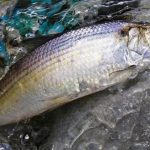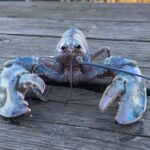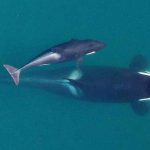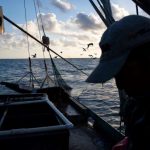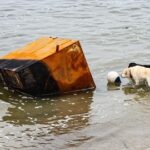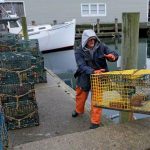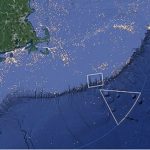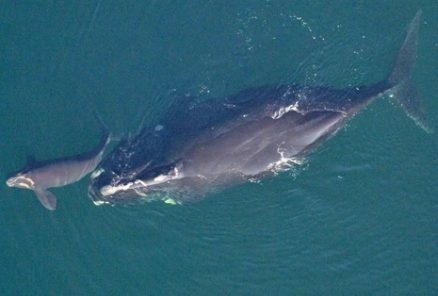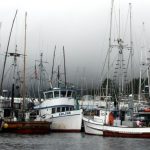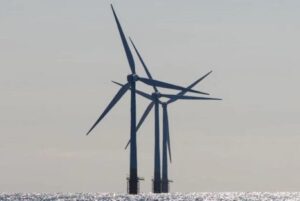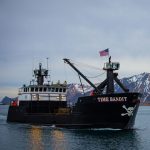Tag Archives: Dick Grachek
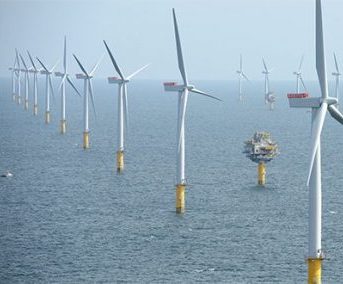
Windmills On The Best Fishing Grounds? Let’s stand up for our fishing resource, a nationally vital food supply.
First of all, why in the hell would anyone want to plant complex machinery, such as wind turbines, in an offshore marine environment in over 100 feet of water …if there were any alternative sites at all? It makes no sense. Only if, perhaps they are so repugnant that on land they will not be tolerated within sight of civilization. So put them “Safely out to sea” and out of sight! This push for offshore wind on the best fishing grounds is motivated by irresponsible and mindless greed! It is not cost effective, not a good long term business plan. And it is certainly not healthy for the ocean ecosystem, or for food security. >click to read<20:11

THE FORAGE FISH FARCE
December 14, 2012 — The Providence Journal’s “PolitiFact” unit investigated claims made by Pew Environment Group in advertisements they ran in several newspapers asking east coast governors to support their demand for a 50% cut in the menhaden harvest. Pew justified this demand saying “… in recent years, menhaden numbers along our coast have plummeted by 90 percent.” The newspaper found the claim to be “Mostly False”. The Providence Journal Lenfest is a Marketing/PR/Lobbying arm of Pew Charitable Trusts, Pew Environmental Group. They (Pew, Lenfest, Oceana, EDF, etc.) are presently working on eliminating the East Coast Menhaden fishery (aka Bunker, Pogies) after going after West Coast sardines recently. click here to read the story 11:38
Dick Grachek: Maximum Sustainable Yield: Just More Management Delusion or a Bureaucratic Con?
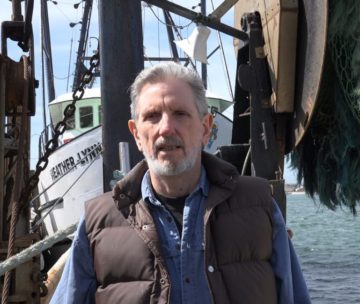 Even if getting out from under the management fantasy of the “extinction delusion” could somehow become a reality, an essential overhaul of the basic goals of fishery management is necessary and must begin by asking the obvious—but totally neglected—question, what exactly is all this management supposed to accomplish, anyway? Maximum Sustainable Yield: Stable and Sustainable Stocks, Right? Well…actually, managing the fisheries to MSY is all wrong. MSY accomplishes nothing more than stock population instability. One of the major mechanisms of this MSY approach is engineering the taking of large fish out of a population in some formulaic proportion to the young recruited into that particular stock. This is a naive and simplistic notion of stock dynamics. It completely ignores a myriad of natural or “biological-environmental” factors that govern fish survival and growth and population. Click here to read the story with a side note from Dick Grachek 17:04
Even if getting out from under the management fantasy of the “extinction delusion” could somehow become a reality, an essential overhaul of the basic goals of fishery management is necessary and must begin by asking the obvious—but totally neglected—question, what exactly is all this management supposed to accomplish, anyway? Maximum Sustainable Yield: Stable and Sustainable Stocks, Right? Well…actually, managing the fisheries to MSY is all wrong. MSY accomplishes nothing more than stock population instability. One of the major mechanisms of this MSY approach is engineering the taking of large fish out of a population in some formulaic proportion to the young recruited into that particular stock. This is a naive and simplistic notion of stock dynamics. It completely ignores a myriad of natural or “biological-environmental” factors that govern fish survival and growth and population. Click here to read the story with a side note from Dick Grachek 17:04
CATCH SHARES – NOT A VIABLE OPTION FOR THE NORTHEAST
 Theoretical constructs that might hold together logically and appear sound often quickly disintegrate in the atmosphere outside their esoteric bubble. This was certainly the case for catch shares or transferable quota management in the New England groundfishery. Catch shares in New England disintegrated almost upon entry. What are catch shares and where did they come from? Catch shares or the commoditization of the fish poundage to be caught, or the ownership of the “right” to harvest a certain portion of the government managers’ scientifically sanctioned total yearly catch, is a construct of “free market environmentalism” theory. The “enviropreneurs” or “enviro-capitalists” claim that ownership equals good stewardship, equals profitability. This privatization push is actually an idea of economics, claiming production “efficiency”, and not one of fishery conservation—although the sales pitch promotes this scheme as the answer to “overfishing”, and just in the nick of time. Click here to read the article 14:58
Theoretical constructs that might hold together logically and appear sound often quickly disintegrate in the atmosphere outside their esoteric bubble. This was certainly the case for catch shares or transferable quota management in the New England groundfishery. Catch shares in New England disintegrated almost upon entry. What are catch shares and where did they come from? Catch shares or the commoditization of the fish poundage to be caught, or the ownership of the “right” to harvest a certain portion of the government managers’ scientifically sanctioned total yearly catch, is a construct of “free market environmentalism” theory. The “enviropreneurs” or “enviro-capitalists” claim that ownership equals good stewardship, equals profitability. This privatization push is actually an idea of economics, claiming production “efficiency”, and not one of fishery conservation—although the sales pitch promotes this scheme as the answer to “overfishing”, and just in the nick of time. Click here to read the article 14:58
We have not published anything by a non-scientist… until today! A fisherman responds to George Burgess
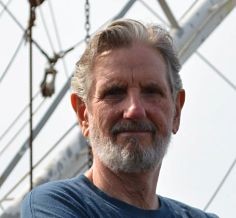 Recently on CFOOD we started a new series where we talk to fishery biologists and let them steer the conversation. We (try to) post one per week and invite anyone to comment or respond to whatever statements our interview subjects make. Our special shark week conversation was with noted shark biologist George Burgess. Dick Grachek, a fisherman out of Point Judith, took issue with some of Burgess’s comments on shark fishermen and women and the spiny dogfish fishery. Here, he responds to Burgess and offers a fisherman’s perspective not often seen.
Recently on CFOOD we started a new series where we talk to fishery biologists and let them steer the conversation. We (try to) post one per week and invite anyone to comment or respond to whatever statements our interview subjects make. Our special shark week conversation was with noted shark biologist George Burgess. Dick Grachek, a fisherman out of Point Judith, took issue with some of Burgess’s comments on shark fishermen and women and the spiny dogfish fishery. Here, he responds to Burgess and offers a fisherman’s perspective not often seen.
A response to George Burgess by Dick Grachek – There exists a carefully controlled and stringently regulated legitimate shark fishery! I have an issue with how George Burgess spoke about shark fishermen and women. He made inaccurate and misleading generalized statements about sharks and shark finning and claimed that, unless carefully scrutinized, “fishers will sneak in extra fins.” In particular, making silly statements about Spiny Dogfish as “high value,” implies a motive for overfishing and contributes to a perception of commercial fishing as greedy and uncaring plunder. These misinformed perceptions lead to baseless regulations. Such regulations are destructive to the fish and the fishermen. They can, and often do, prevent legitimate harvesting of a vital, healthy food source. Read the rest here 20:58
Catch Shares – Proven to be A Bad Idea
 The following is an opinion piece written by CSF board member Dick Grachek some time ago but time has not altered his view: The problem with catch shares is not in their “design”. The problem with catch shares is in their existence. Except for a few “winners” perhaps, it’s a problem for all concerned that this flawed and destructive privatization scheme was even considered, no less established as a management approach. Catch Shares have done nothing to help the fish. Catch Shares have done nothing to help the fishermen and the fishing communities. Catch Shares have done nothing to help the fish consuming public. Catch shares were not put to the referendum vote as statutorily mandated by the MSA. Catch Share Sectors were not “voluntarily” joined by the majority of the fishermen—the common pool was not a viable “option”. Read the rest here 15:21
The following is an opinion piece written by CSF board member Dick Grachek some time ago but time has not altered his view: The problem with catch shares is not in their “design”. The problem with catch shares is in their existence. Except for a few “winners” perhaps, it’s a problem for all concerned that this flawed and destructive privatization scheme was even considered, no less established as a management approach. Catch Shares have done nothing to help the fish. Catch Shares have done nothing to help the fishermen and the fishing communities. Catch Shares have done nothing to help the fish consuming public. Catch shares were not put to the referendum vote as statutorily mandated by the MSA. Catch Share Sectors were not “voluntarily” joined by the majority of the fishermen—the common pool was not a viable “option”. Read the rest here 15:21
Dick Grachek responds to “Cod stocks on south coast of Newfoundland ‘OK but not great’
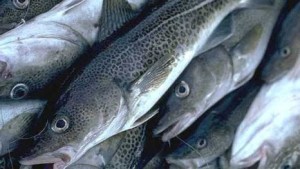 From the above linked article posted on Fishery Nation.com: “The spawning stock is now between the ages for four and seven years, which [lead researcher Rick] Rideout called a ‘pretty restricted’ age.” Click here to read the article “Basically, fish are not surviving to those older ages, they’re coming into the stock … but they’re not surviving to older age, and again, that’s a big concern.” Then abandon MSY management! A majority of younger fish comprising the spawning stock is a function of Maximum Sustainable Yield management (MSY). This MSY management balances the numbers of larger spawning fish taken out of a stock against the numbers of individuals of smaller younger fish entering the stock or “recruitment”—guess what, this yields a highly unstable stock of smaller younger fish. Read the rest here 19:47
From the above linked article posted on Fishery Nation.com: “The spawning stock is now between the ages for four and seven years, which [lead researcher Rick] Rideout called a ‘pretty restricted’ age.” Click here to read the article “Basically, fish are not surviving to those older ages, they’re coming into the stock … but they’re not surviving to older age, and again, that’s a big concern.” Then abandon MSY management! A majority of younger fish comprising the spawning stock is a function of Maximum Sustainable Yield management (MSY). This MSY management balances the numbers of larger spawning fish taken out of a stock against the numbers of individuals of smaller younger fish entering the stock or “recruitment”—guess what, this yields a highly unstable stock of smaller younger fish. Read the rest here 19:47
The Real “Seafood Fraud” Mislabeling Miscreants
What is this “mislabeling” and “seafood fraud” scuffle all about these days? Why, you might ask, is Oceana suddenly so concerned about “truth in packaging” for fish? And what is behind their somewhat baffling concern for the fish-consuming public? Actually, Pew, Oceana, EDF, NRDC, and CLF (and too long a list of their additional subsidiaries to cite here) have for many years been doing some of their own “mislabeling” and “seafood fraud”. They’ve been “mislabeling” fishermen as overfishing-greedy-habitat-
Dick Grachek: Thank you Seth Macinko
 Thank you Seth Macinko. Since I’ve been reading your work, over several years of Fish Wars, it has always been gratifying to see that there is at least one person in the URI Economics Department and Department of Marine Affairs that values truth and integrity over personal economic gain. Read the rest here 17:26
Thank you Seth Macinko. Since I’ve been reading your work, over several years of Fish Wars, it has always been gratifying to see that there is at least one person in the URI Economics Department and Department of Marine Affairs that values truth and integrity over personal economic gain. Read the rest here 17:26
The Bottom Line: Time to Protect Pacific Forage Fish. The Real Bottom Line- The Forage Fish Farce
Time to Protect Pacific Forage Fish
I learned long ago that it pays to plan ahead before I hit the water for a day of fishing. Knowing the tides, watching the weather, and reading the fishing blogs for the latest intelligence can make all the difference. Lee Crockett of The Pew Charitable Trusts 11:22
THE FORAGE FISH FARCE by Dick Grachek
The Providence Journal’s “PolitiFact” unit investigated claims made by Pew Environment Group in advertisements they ran in several newspapers asking east coast governors to support their demand for a 50% cut in the menhaden harvest. Pew justified this demand saying “… in recent years, menhaden numbers along our coast have plummeted by 90 percent.” more here
BULLARD, SHELLEY, and COD: or Fish Being and Nothingness – Dick Grachek

“Returning Our New England Fisheries to Profitability”: “You’re doin’ a great job, Brownie” aka, Janie, Johnny, Petey. You should be proud. Mission Accomplished?
In her resignation email Lubchenco made the gravity-defying claim that she had made “notable progress” in “ending overfishing, rebuilding depleted stocks, and returning fishing to profitability”; but soon after, John Bullard “In an interview at the Times, Bullard said the telling figure was that the fleet caught only 54 percent of the allowed catch in 2012, and reasoned from that statistic that there is a dearth of inshore cod, a situation that warrants serious action to reverse.” Richard Gaines March 8, 2013 Gloucester Daily Times, “NOAA head explains stock stand” continued
CLF and CLF Ventures: or we get rich by litigating the hostile takeover and trading away of public resources for corporate exploitation while claiming to save the planet. Dick Grachek
The Conservation Law Foundation (CLF) and their “strategy-consulting arm” CLF Ventures apparently have become fisheries Policy Makers, Litigators, Fishing Quota Fund Administrators, and the authors of a “suite” of fishery conservation goals and the “metrics of success” of this suite of goals.
CLF and CLF Ventures engineered this catch share privatization scam right from the beginning—with the help of some Cape Cod “fishermen”. The Cape Cod Trust program was set up as a “success story”, a prototype for the implementation of the Amendment 16 catch shares program, the market-based atrocity that we have today. CLF Ventures (most deservedly) collects fees along the line “…as the strategy-consulting arm of the Conservation Law Foundation.”
It’s the “doing good while doing well” credo of “Free-Market Environmentalism, the Enviro- Capitalists” or translated: We get rich by stealing and trading public resources while claiming to save the planet. continue reading!
Dick Grachek – Pew laboring overtime on Tuna, in the Biblical sense.
 Couldn’t resist; spent the whole day on this, got so fired up at their blatant BS. DG
Couldn’t resist; spent the whole day on this, got so fired up at their blatant BS. DG
Fish News EU reports another missive from Pew (see copy and link below). And it’s a Beaut…so full of feeling.
“THREE days after a single Pacific bluefin tuna fetched $1.76 million at auction in Tokyo, scientists have revealed their population has dropped 96.4 per cent from unfished levels, due to decades of overfishing.”
Notice how Pew cites the generic “scientists”, never mentioning exactly who these “scientists” are, or for whom they are working or receiving grants from, or who funded this particular scientific revelation. As if with the word scientist, the reader should pause a moment in awe and wonderment and take every word that follows as gospel—no need to inquire any further. If the Pewian scientists have revealed unto us…Behold, and we shall then believe. Read more!
WHAT’S THE MATTER WITH NOAA? – Dick Grachek
WHAT’S THE MATTER WITH NOAA?
Or: Trouble in the Un-Regulated Community
At the risk of stating the obvious: NOAA’s stock assessments are clearly inadequate.
When they are used as a basis for fisheries regulations, the entire management process becomes destructive to both the fish and the fishing industry.
We need a far more comprehensive research and management philosophy if we are to ever come close to realistic assessments and sound management.
The Extinction Delusion
Delusion is a belief held with strong conviction despite superior evidence to the contrary. (From Wikipedia)
This extinction-of-the-week approach to management is looking more ridiculous and destructive than ever. We owe it to the fish and to the fishermen to throw out this crisis-mentality management regimen which requires that researchers devote themselves to finding data that will support the crisis predisposition.
Is there a species that swims in the ocean that has not been found to be in dire need of stringent regulation? Now it’s Abalone! What happened to the “endangered” Sturgeon? Have they now recovered? And please don’t overlook the Wolffish, Cod, Haddock, Pollock, Yellowtail, Black Back Flounder, Fluke, Sea Bass, Dogfish, Skates, Red Snapper, Grouper? There must be a lament at NOAA headquarters that goes something like, “…so many species and such precious little time to find evidence of their endangerment!”
Then there’s always the Butterfish shortage which apparently is the only vehicle that NOAA could find in order to squelch fishing for the abundant Loligo Squid. Butterfish are sometimes found with Loligo Squid; however, NOAA’s Butterfish extinction watch ignores the fact (well known to fishermen) that, should they suddenly decide to surface, one could walk on the floating rafts of Butterfish from Cape Cod to Louisiana. But, there’s no need to let reality get in the way of a good campaign-to-save-a-species, even if the claimed fish scarcity is pretty much confined to the reality that exists as a construct in one of the SSC’s eccentric computer models. Scarce Butterfish is certainly not a reality that can be found in the ocean.
So, what can be done? Effective management of the fisheries is not an impossible endeavor; but a total overhaul of the attitude and thinking regarding our fisheries is essential.
Pages 2-5 will be in the comment section to save front page space!



































